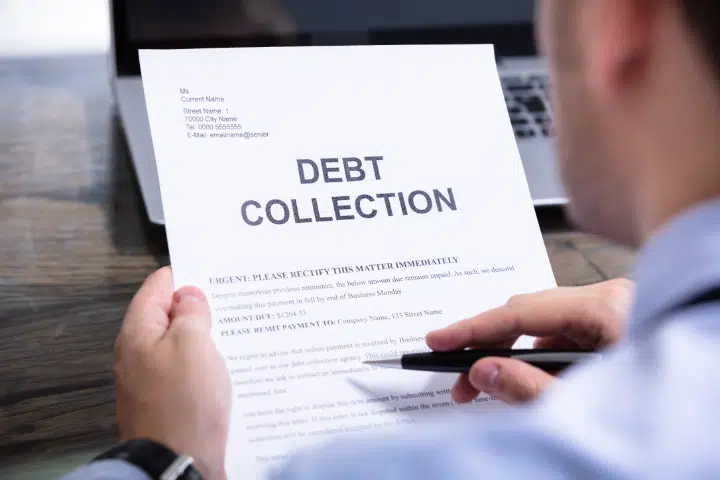
In the realm of debt enforcement, the Netherlands has established robust strategies to ensure effective resolution. With a focus on negotiation, legal action, and clear communication, the Dutch system aims to protect the rights of both debtors and creditors. This discussion will delve into the various strategies employed, shedding light on the intricacies of negotiating payment plans, utilizing Dutch debt collection agencies, and taking legal action when necessary. Furthermore, it will explore the importance of understanding the debt enforcement system, communicating effectively with creditors, managing and prioritizing debts, and seeking professional advice and assistance. By exploring these strategies, readers will gain valuable insights into the Dutch approach to debt enforcement and discover practical methods to navigate the complex landscape of debt resolution in the Netherlands. Our Dutch debt collection law firm will provide you with the most important aspects.
Negotiating Payment Plans
Negotiating payment plans is a crucial aspect of debt enforcement in the Netherlands, allowing debtors and creditors to reach mutually beneficial agreements for repayment. The Dutch legal system encourages parties to negotiate payment plans as part of its debtor-friendly approach to debt enforcement. This approach prioritizes the rehabilitation and reintegration of debtors into society while also ensuring that creditors can recover their debts.
When negotiating payment plans, debtors and creditors have the opportunity to discuss and agree upon repayment terms that are feasible and realistic. This allows debtors to make regular payments based on their financial capabilities, thereby avoiding the need for more aggressive debt collection measures. By reaching such agreements, debtors can gradually repay their debts without facing excessive financial burdens, while creditors can recover their funds over an extended period.
Negotiating payment plans also enables creditors to maintain a working relationship with debtors, as it fosters cooperation and trust. This can be particularly beneficial for businesses that rely on ongoing transactions with their debtors. By engaging in negotiations, both parties can establish a more favorable outcome compared to pursuing litigation or other enforcement methods.
Utilizing Debt Collection Agencies
To further enhance the effectiveness of debt enforcement in the Netherlands, the utilization of debt collection agencies proves to be a valuable resource for both debtors and creditors. Debt collection agencies are specialized firms that assist creditors in recovering outstanding debts from debtors. These agencies have the expertise and resources to handle debt collection efficiently, often employing various strategies to maximize recovery rates.
One of the key benefits of utilizing debt collection agencies is their ability to dedicate time and resources to debt recovery, which can be challenging for individual creditors. Debt collection agencies have access to advanced technology and databases, enabling them to trace debtors and locate their assets, increasing the chances of successful debt recovery. Additionally, these agencies specialize in negotiation and communication, employing effective techniques to engage with debtors and encourage repayment.
Furthermore, debt collection agencies often offer a range of services to creditors, including skip tracing, credit reporting, and legal action if necessary. These additional services can significantly improve the overall debt enforcement process, providing creditors with comprehensive solutions to their debt recovery needs.
Taking Legal Action When Necessary
Legal action becomes a necessary course of action in debt enforcement when other attempts to collect outstanding debts have been unsuccessful. When faced with the need to take legal action, debt enforcement strategies should be carefully planned and executed in order to maximize the chances of successful debt recovery.
Here are four key considerations for taking legal action in debt enforcement:
- Assess the viability of legal action: Before initiating legal proceedings, it is crucial to evaluate the likelihood of success. Factors such as the debtor’s financial situation, the amount owed, and the availability of supporting evidence should be taken into account.
- Engage legal professionals: Seeking the expertise of experienced debt recovery lawyers is essential in navigating the complexities of debt enforcement. Legal professionals can provide guidance on the appropriate legal measures to be taken and ensure compliance with relevant laws and regulations.
- File a lawsuit: Initiating a lawsuit involves drafting a complaint outlining the details of the debt, the legal basis for the claim, and the desired outcome. The lawsuit should be filed with the appropriate court and served to the debtor, initiating the legal process.
- Enforce the court judgment: If successful, obtaining a court judgment in favor of the creditor is only the first step. It is crucial to enforce the judgment effectively by employing various legal methods, such as wage garnishments, bank account seizures, or property liens, to secure the repayment of the outstanding debt.
Understanding the Debt Enforcement System
Understanding the intricacies of the debt enforcement system is crucial for creditors seeking to recover outstanding debts in the Netherlands. The debt enforcement system in the Netherlands is governed by the Dutch Civil Code and the Act on Debt Collection Costs. It is designed to provide an efficient and fair process for creditors to enforce their rights and collect outstanding debts.
The debt enforcement process typically begins with a creditor obtaining a court order, such as a judgment or an authentic deed. This court order serves as the basis for initiating the enforcement proceedings. Once the court order is obtained, the creditor can choose from various enforcement measures, including attachment of assets, garnishment of wages, and seizure of bank accounts.
In order to enforce the debt, the creditor must serve the debtor with a notice of enforcement, informing them of the enforcement measures that will be taken. The debtor then has the opportunity to object to the enforcement measures within a specified time frame. If no objection is raised, the enforcement measures can proceed.
It is important for creditors to understand the timelines and procedures involved in the debt enforcement system in order to effectively recover outstanding debts. By familiarizing themselves with the rules and regulations governing debt enforcement in the Netherlands, creditors can navigate the process more efficiently and increase their chances of successful debt recovery.
Communicating Effectively With Creditors
Effective communication with creditors is essential for successful debt recovery in the Netherlands. The ability to effectively communicate with creditors can greatly impact the outcome of debt enforcement efforts. Here are four key strategies to consider when communicating with creditors:
- Transparency: Be transparent about the debtor’s financial situation, including income, expenses, and assets. This helps build trust and shows a willingness to cooperate.
- Regular Updates: Provide regular updates to creditors on the progress of debt recovery efforts. This shows a commitment to resolving the debt and keeps creditors informed and engaged.
- Clear Documentation: Maintain clear and organized documentation of all communication with creditors. This helps avoid misunderstandings and ensures that all parties are on the same page.
- Professionalism: Maintain a professional and respectful tone when communicating with creditors. This fosters a positive relationship and increases the likelihood of reaching a mutually beneficial resolution.
Managing and Prioritizing Debts
To effectively manage and prioritize debts, it is crucial to assess the financial obligations and create a systematic plan for repayment. This process involves evaluating the nature of each debt, understanding the associated terms and conditions, and determining the available resources for repayment.
The first step in managing debts is to gather all relevant information regarding outstanding balances, interest rates, and payment schedules. This comprehensive assessment allows individuals or organizations to identify the most pressing and urgent debts that require immediate attention. It is essential to prioritize debts based on their impact on credit ratings, potential legal consequences, and the possibility of additional fees or penalties.
Once the debts have been assessed and prioritized, a systematic plan for repayment can be developed. This plan should take into account the individual’s or organization’s financial capabilities and establish a realistic timeline for settling the debts. Consideration should be given to negotiating repayment terms with creditors, seeking professional advice from debt counselors, or exploring debt consolidation options.
Regular monitoring of progress is vital to ensure that the plan remains on track. Adjustments may be necessary if circumstances change or unforeseen expenses arise. By effectively managing and prioritizing debts, individuals and organizations can regain control over their finances and work towards achieving financial stability.
Seeking Professional Advice and Assistance
After assessing and prioritizing debts, individuals and organizations may find it beneficial to seek professional advice and assistance in navigating the complexities of debt management and repayment. Professional guidance can provide valuable insights and strategies to effectively deal with debt-related challenges.
Here are four compelling reasons why seeking professional advice and assistance is essential:
- Expertise and Knowledge: Debt professionals possess in-depth knowledge of debt management laws, regulations, and strategies. They can provide tailored advice based on individual circumstances, ensuring the most effective debt resolution options are explored.
- Objective Assessment: Professionals offer an unbiased perspective on the debt situation, helping individuals and organizations make informed decisions. They can analyze financial records, negotiate with creditors, and develop realistic repayment plans, enabling debtors to regain control over their finances.
- Legal Protection: Debt professionals are well-versed in debt enforcement laws and regulations. They can guide debtors through legal procedures, ensuring their rights are protected and preventing any potential violations.
- Emotional Support: Dealing with debt can be emotionally challenging. Professionals offer emotional support to help individuals and organizations navigate the stress and anxiety associated with debt. Their guidance can provide reassurance and motivation for debtors to stay committed to their debt management plans.
Seeking professional advice and assistance is a proactive step towards effective debt enforcement. By leveraging their expertise and support, individuals and organizations can achieve financial stability and regain control over their lives.
Conclusion
In conclusion, effective debt enforcement in the Netherlands requires a strategic approach that includes:
- Negotiating payment plans
- Utilizing debt collection agencies
- Taking legal action when necessary
- Understanding the debt enforcement system
- Communicating effectively with creditors
- Managing and prioritizing debts
- Seeking professional advice and assistance
By implementing these strategies, individuals and businesses can navigate the debt enforcement process more efficiently and increase the likelihood of successfully resolving their debts.


